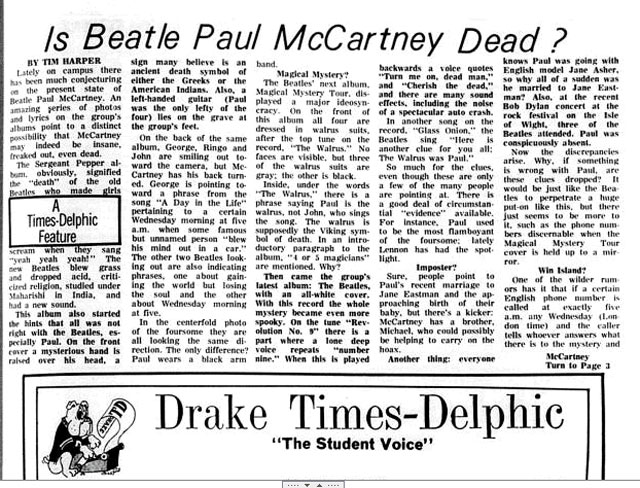
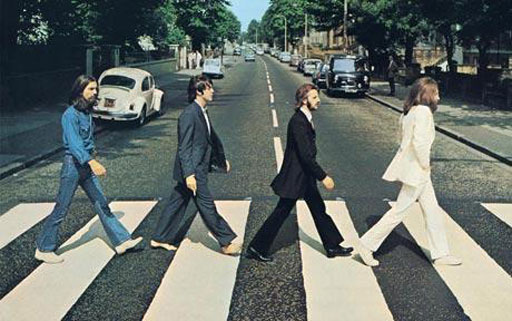
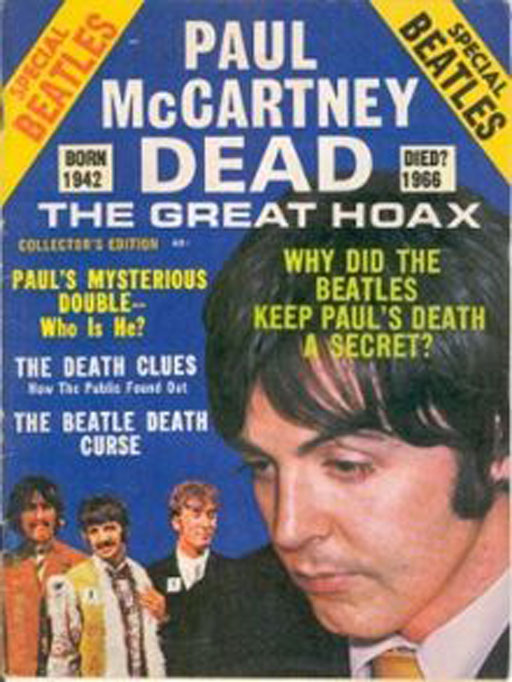
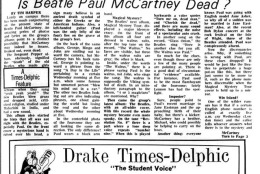
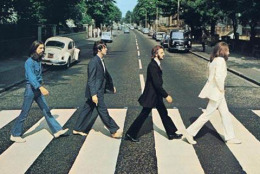
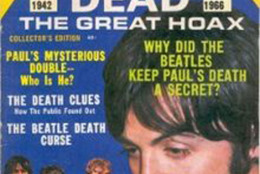
WASHINGTON – Arguably the world’s most famous and enduring urban legend took hold 44 years ago this month.
On Sept. 17, 1969 the student newspaper of Drake University in Iowa published an article by student Tim Harper, entitled “Is Beatle Paul McCartney Dead?”
Harper’s article is widely-regarded as the first published report of an elaborate rumor that had been circulating that McCartney had died.
The rumor included numerous supposed clues among lyrics and artwork that McCartney had died.
After more than a month, the Beatles press office issued a statement denying the rumor, calling it “a load of rubbish” and noting “Paul is still very much with us.”
␎ 
‘Paul is dead’ clues existed in lyrics and album covers. (Apple Records)
In this digital age, where millions learn and spread information and misinformation daily, one can only imagine how the “Paul is dead” rumor would have played out if Twitter and Facebook existed.
“The speed at which rumors and ideas travel is remarkably different,” says social media expert Prof. Ben Shneiderman, of University of Maryland’s Dept. of Computer Science.
With Twitter, a piece of information – correct or incorrect – can domino once it’s been retweeted by a person with a large number of followers.
“The media was more centralized,” says Shneiderman. “Now, you can get this remarkable cascade where things spread very quickly.”
Kelly McBride, senior faculty at Poynter Institute, says while some aspects of reporting rumors has changed, some have remained the same.
“Paul McCartney has died a number of times on Twitter, and every time so far it’s turned out to not be true,” McBride says.
McBride wonders whether the Beatles were interested in dispelling the rumor, since it came just after the release of their “Abbey Road” album.
“They were aware of the rumor for a long time and did not knock it down,” says McBride.
“When the people who actually have the truth don’t participate in the conversation, then we are at a loss as a community of people in conversation with each other,” says McBride.
Shneiderman says even after the the truth emerged, “individual cells of believers would continue to think Paul was dead and fake-Paul accounts would spread other rumors.”
“Bad information never dies,” says McBride.
Shneiderman and McBride say with bloggers repurposing information, it’s likely the rumor would persist in today’s environment.
“Inevitably there will be people who carry the story their own way and spin it,” says Shneiderman.
McBride says with today’s search engines, “The good information tends to rise to the surface when people have an interest in discovering the truth.”
In the Twitter age, McBride envisions others close to McCartney could have provided information to soothe fans’ fears.
“His barber, his massage therapist, whatever, who might weigh into the conversation and they would have more credible information because they’re firsthand sources,” says McBride.
Follow @WTOP and @WTOPtech on Twitter.







